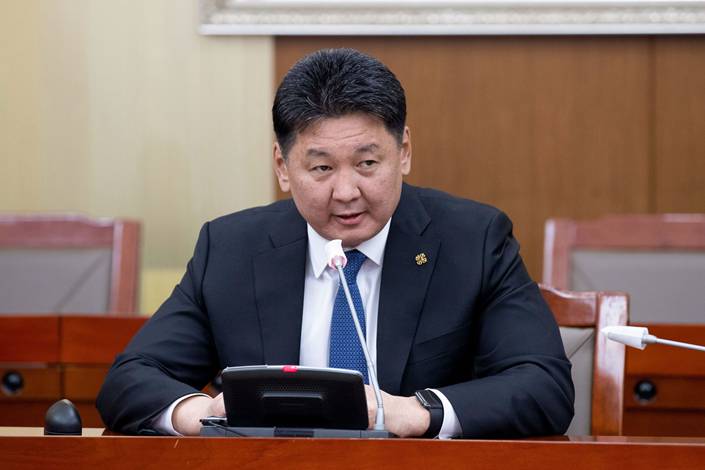The Mongolian President, Khurelsukh Ukhnaa, arrived in India on Monday for a four-day visit. He was received by Union Minister of State for Civil Aviation and Cooperation, Muralidhar Mohol, at the airport in New Delhi. Ministry of External Affairs (MEA) spokesperson Randhir Jaiswal said that the Mongolian President was accorded a guard of honour and a ceremonial welcome.
“Reinforcing the deep civilisational bond between our countries, President Khurelsukh Ukhnaa of Mongolia has arrived in New Delhi on a state visit to India. He was awarded a guard of honour and ceremonial welcome at the airport. Warmly received by MoS Civil Aviation, Mr. Muralidhar Mohol,” stated the official spokesperson for the Ministry of External Affairs in a post on X.
The Mongolian President has arrived on the invitation of President Droupadi Murmu and will be in India from October 13–16. He is accompanied by a high-level delegation comprising cabinet ministers, members of parliament, senior officials, business leaders, and cultural representatives. Ukhnaa’s visit to India as the head of state of Mongolia will be the first of its kind.
During his visit, President Murmu will meet and host a banquet in his honour. President Ukhnaa will hold talks with Prime Minister Narendra Modi and review the entire range of bilateral relations. Vice President K. P. Radhakrishnan, Defence Minister Rajnath Singh, and External Affairs Minister S. Jaishankar are also expected to meet the dignitary.
Diplomatic relations between India and Mongolia were established in 1955. Over the past seven decades, both countries have developed a multifaceted partnership derived from shared cultural and spiritual links and democratic values. The partnership spans across sectors such as defence and security, development partnership, parliamentary exchange, energy, mining, information technology, education, healthcare, and cultural cooperation, according to the MEA.
This state visit by the Mongolian President will provide an opportunity for the leadership of both countries to review progress in bilateral relations, set the vision for strengthening the strategic partnership, and exchange views on regional and global issues of mutual interest, such as terrorism and war.


